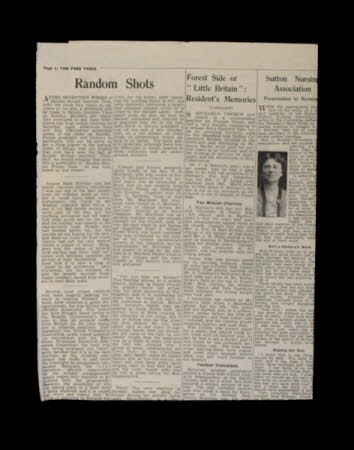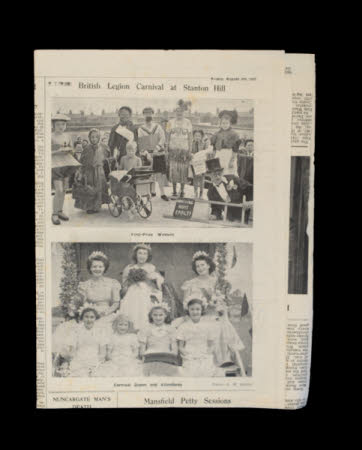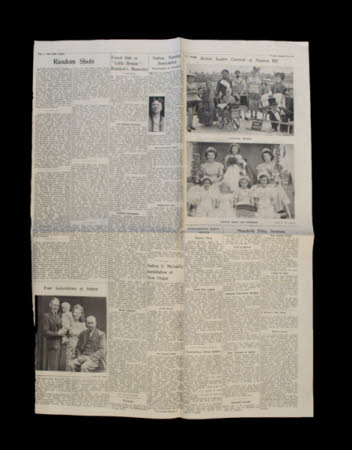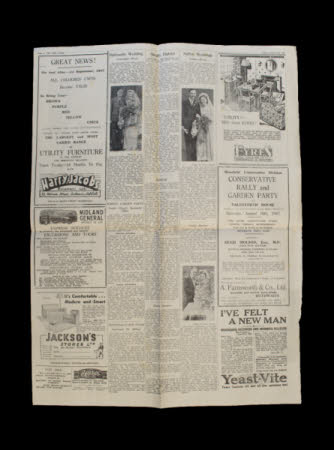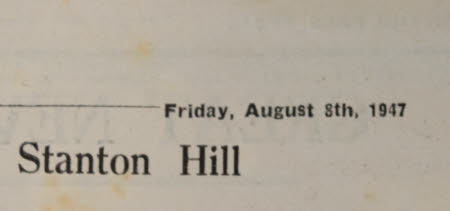THE FREE PRESS
Category
Ephemera
Date
8 Aug 1947
Materials
Newspaper
Measurements
244 x 190 x 1 mm
Order this imageCollection
Mr Straw's House, Nottinghamshire
NT 748900.2
Summary
One of fourteen pages taken from several 'THE FREE PRESS' from 1947, kept with a whole 'THE TIMES' from 1966 and a sheet from 'Worksop Guardian' from 1938. The page is dated 'Friday, August 8th, 1947' on the top right of the back, as folded. The top as the page is folded has 'Page 5: THE FREE PRESS' in the top left corner. 'Random Shots AFTER SEVENTEEN WEEKS of Double British Summer Time, with the clock two hours in ad- vance of the sun, a reversion will be made to British Summer Time on Sunday. Readers are there- fore reminded to put back time pieces one hour before retiring on Saturday night, otherwise they will find themselves somewhat ahead of the times on Sunday. People generally, and farmers in particular, will not be sorry to get a little nearer to the natural order of things, and are hoping that they have seen the last of Double British Summer Time. Still we should imagine that even this is preferable to "Double Brit- ish Winter Time" - at any rate, based on last winter! '. In 1880 the legal time for Great Britain was made Greenwich mean time by Act of Parliament; that for Ireland was made Dublin mean time. This established a uniform timescale of GMT (the time for Ireland was changed in 1916 to also be GMT), until the development of atomic timescales in the 1950s. However, successive governments introduced the institution of Summer Time, advancing the legal time by one hour during the summer months in order to promote greater efficiency in the use of the daylight hours and of artificial lighting. This was originally introduced as a wartime measure in 1916, but has been continued through peacetime as well, with occasional variations such as double summer time (advancing the clocks by a second hour for part of the summer) in World War II. The government also experimented with British Standard Time from 1968 to 1972, by which the time was advanced by one hour from GMT throughout the year. A White Paper published in 1970 said it was impossible to quantify the advantages and disadvantages of British Standard Time. The experiment was debated in the Commons on 2 December 1970 and - by a vote of 366 to 81 - the experiment was discontinued. Since then, a number of MPs have tried - and failed - to change the clocks through private members' bills, with much of the resistance coming from north of the border.
